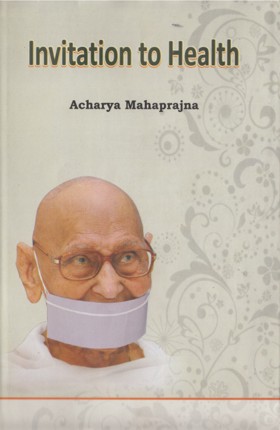There Is Need Of That Tradition Which Can Unite Politics With Nonviolence
"C.B.I. Enquiry against Eleven Gandhian Institutions" (Dainik Hindustan, 9th August 1989)—this heading is astonishing. In it, Gandhi's name is associated. That Gandhi who scolded for long his Secretary Pyarelal for the account of two paisa. One railway traveler asked Gandhi, "Bapu! You scolded Pyarelal Ji so much for the account of two paisa?" Gandhi replied, "Question is not that of two paisa. Question is that of public money. Public gives me money on faith. Public will lose faith in me even if a single paisa is not properly accounted." That ideal of Mahatma Gandhi is getting silenced in the background of this enquiry. Had that been vocal, the page of Kudal Commission Report would have been bright. The task of enquiry of the matter of alleged misappropriation of money would not have been entrusted to C.B.I. Whatever has happened it cannot be regarded as fortunate. Occurrence of such events is not surprising. This particular one is surprising for the reason that it is associated with the name of Gandhian institutions.
Gandhism is leadership-less
The Kudal Commission Report can be regarded as controversial; C.B.I, enquiry can also be given political colour, but Gandhi is Gandhi. He cannot be changed. He is not alive today. He is not responsible for the institutions named after him. Something happened in those institutions, this also is not a debatable point for me. The debatable point is that today there is no one who can hold the thread of Gandhism. Acharya Vinoba to some extent led Gandhism. Now he also is not in this world. That is why Gandhism is appearing like leadership-less or like needle-less direction indicator.
Gandhism: Contemporary position
Gandhiji always negated the word Gandhism. He did not want that after him there should be any cult. His wish might have special meaning but it is not in accordance with human psychology. We present a four-cornered framed ideology and negate its form, how can this be possible? One can be cautious of the dangers connected with cults/sects but the cult arising out of ideology cannot be blocked. Gandhiji adored his free ideology but did not think it proper to put a crown on it. The result was cult was established but leadership did not develop. If along with cult development of leadership is also thought of then good consequences may come. If cult becomes necessary and the question of developing leadership is negated, then odd situation arises. Gandhism today is suffering the same situation.
No judge: no controller
The morality of Gandhiji is associated with non-violence. Non-violence is the biggest solution of worldly problems but there is no authorized administrator or monitor of Gandhian principles. Sampradāya (cult) means acceptance of the tradition of succession.
If Gandhiji had appointed someone as a spokesperson of Gandhism by garnering full strength and would have thought of taking ahead that tradition, then for one or two centuries an able administrator of the principle of non-violence would have been available. In remote future situation, may change but in near future there is so much of indecisiveness.After me whether there should be a sect or not—both these thoughts are relative. It is not desirable to regard them as absolute. If a sect continues with its pious aims and nonviolent principles, then what is harm in that? But if it continues by ignoring these then what is the sense in continuing it.
There is a need for a turn
Gandhism continues or not, this is not the subject of my thought. The point of my thought is—decentralized power and decentralized economic policy and decentralization of commerce and industry are more beneficial to society. The policy of centralization has rendered society mechanical. Machine is overpowering human. The grip of robot is spreading and human is contracting. Devaluation of consciousness is the resultant of the materialistic attitude of today. For facing this situation no violent policy can be successful. There is not a single organization in the fields of politics and society which can either through satyāgraha and non-violent method can give a turn to this policy of centralization. Today really there is a need for a turn. I agree that a person like Gandhi cannot be produced, he is born by himself. Tradition forms personalities—sometimes regularly and sometimes with gaps—but there is no discontinuity in it. Absence of tradition produces the situation of discontinuity. I am a supporter of tradition but along with it I am also a supporter of its management. It is never desirable for me that tradition may continue and there is no manager of it.
 Acharya Mahaprajna
Acharya Mahaprajna
